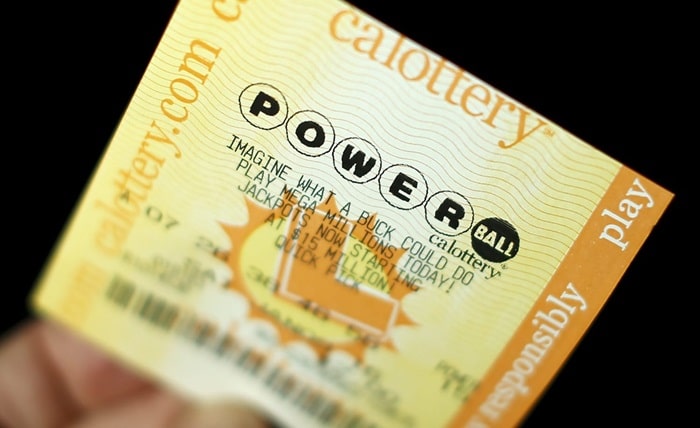Lotology Definition: The Science and Fascination Behind Lottery Studies

Introduction
The lotology definition refers to the study of lotteries, including their history, mathematical probabilities, and societal impact. Lotology is an intriguing field that captivates those interested in statistical analysis, gambling studies, and cultural implications of lotteries. Understanding the lotology definition provides insights into how lotteries shape economies, affect individual behaviors, and contribute to government revenues.
What is the Lotology Definition?
The lotology definition can be described as the formal study of lotteries and their effects on society. This field covers various aspects, including probability theory, statistical patterns, and economic influence. Many researchers, mathematicians, and social scientists explore lotology definition to analyze how lotteries function and how they affect human psychology.
Lotology also includes understanding different lottery systems worldwide and how people perceive luck and randomness. By grasping the lotology definition, individuals can make informed decisions about participating in lotteries and understanding their impact on financial well-being.
The History of Lotology and Lottery Studies
The lotology definition dates back centuries, with lotteries being a part of human civilization for thousands of years. Ancient civilizations, including the Chinese Han Dynasty and Roman Empire, used lotteries for fundraising and social projects. The evolution of lotteries over time has given rise to the study of lotology definition, focusing on statistical fairness and ethical considerations.
With the rise of modern technology, the lotology definition has expanded to include digital lotteries and online gaming systems. Understanding the historical aspects of lotology helps researchers and enthusiasts comprehend the significance of lotteries in shaping cultures and economies worldwide.
How the Lotology Definition Relates to Probability and Statistics
One of the core components of the lotology definition is probability theory and statistics. Lotteries rely on randomness, and lotologists study patterns in number selection, winning odds, and probability distribution. The lotology definition encompasses mathematical formulas used to predict potential lottery outcomes, though winning remains a game of chance.
Statistical models in lotology help researchers assess whether certain number sequences appear more frequently and whether lottery systems are genuinely random. Understanding the lotology definition from a statistical perspective allows lottery players to manage their expectations and approach lottery participation more strategically.
Psychological Aspects of the Lotology Definition
The lotology definition extends beyond mathematics and into psychology. Many people are fascinated by lotteries due to the excitement and hope they bring. Researchers studying the lotology definition explore how the human mind perceives luck, risk-taking, and reward-seeking behavior.
Lotteries often exploit cognitive biases, such as the gambler’s fallacy and overestimation of winning probabilities. Understanding the lotology definition from a psychological angle helps people recognize these biases and make rational choices regarding lottery participation.
Economic and Social Impact of the Lotology Definition
The lotology definition plays a crucial role in understanding the economic and social consequences of lotteries. Governments use lotteries to generate revenue for public projects, while critics argue that lotteries disproportionately affect lower-income populations. Studying the lotology definition provides insights into how lotteries shape economic landscapes and social structures.
Lotteries contribute billions of dollars annually to education, infrastructure, and public welfare programs. However, understanding the lotology definition also involves recognizing the potential drawbacks, such as gambling addiction and financial hardship for frequent lottery players.
Ethical Considerations in the Lotology Definition
Examining the lotology definition also involves ethical questions surrounding lotteries. Are lotteries a fair means of generating revenue, or do they exploit vulnerable populations? Researchers who explore the lotology definition analyze lottery marketing strategies, fairness in prize distribution, and the moral implications of state-sponsored gambling.
Lotteries are often marketed as a harmless form of entertainment, but the lotology definition reveals the complexities behind lottery participation. Ethical discussions in lotology encourage governments and organizations to implement responsible gambling policies to protect consumers.
The Future of Lotology and Lottery Studies
As technology evolves, the lotology definition continues to expand. Online lotteries, blockchain-based lottery systems, and artificial intelligence-driven prediction models are reshaping the landscape of lottery studies. The future of lotology definition includes advancements in lottery security, transparency, and fair play.
The increasing accessibility of digital lotteries raises new challenges and opportunities for researchers. By staying informed about the lotology definition, individuals and policymakers can navigate the evolving world of lotteries responsibly and ethically.
Conclusion
The lotology definition encompasses the comprehensive study of lotteries, including their historical background, mathematical foundations, psychological effects, economic impact, and ethical considerations. Understanding the lotology definition helps individuals make informed choices about lottery participation and highlights the broader implications of lotteries in society. As technology advances, the field of lotology continues to evolve, offering new perspectives on how lotteries function and influence people worldwide.
FAQs
1. What does the lotology definition mean?
The lotology definition refers to the study of lotteries, including their history, statistical patterns, and psychological and economic impacts.
2. Why is the lotology definition important?
Understanding the lotology definition helps individuals analyze lotteries from mathematical, ethical, and psychological perspectives, promoting informed participation.
3. How does probability relate to the lotology definition?
The lotology definition includes probability theory and statistics to study lottery randomness, number patterns, and winning odds.
4. Are there ethical concerns in the lotology definition?
Yes, the lotology definition examines ethical concerns related to lottery fairness, government regulations, and potential exploitation of vulnerable populations.
5. What is the future of the lotology definition?
The lotology definition is evolving with advancements in technology, including digital lotteries, AI-driven predictions, and blockchain-based lottery systems.





